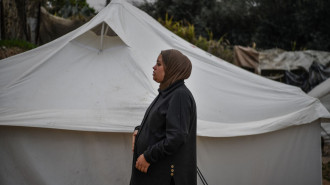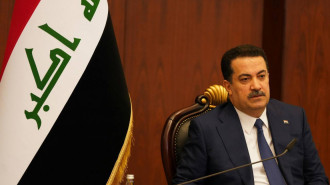Iran nuclear: Tehran urges IAEA 'not to yield to Israel's pressure', says ready to cooperate
Iran is ready to continue its cooperation with the UN nuclear watchdog, Iranian Foreign Ministry spokesman Nasser Kanaani said on Monday, calling on the agency "not to yield to Israel's pressure" over Tehran's nuclear activities.
The International Atomic Energy Agency's (IAEA) Board of Governors meets on Monday, three months after adopting a resolution urging Iran to give credible answers to the agency's investigations into uranium traces at three sites in Iran.
Iran has rejected the probes as politically motivated.
"Iran announces its constructive cooperation with the agency as its obligation… While Iran has obligations, it also has rights," Kanaani told a televised news conference.
"The agency should preserve its credibility."
Israel, widely acknowledged to be the Middle East's only nuclear power, though it has never declared its arsenal, has pledged never to allow Iran to obtain atomic weapons, saying Tehran advocates its destruction. Iran denies ever seeking nuclear arms and says its atomic programme is peaceful.
"Naturally Iran expects constructive actions from IAEA and the members of its governing board," Kanaani said.
After 16 months of indirect talks between Tehran and Washington, European Union foreign policy chief Josep Borrell said on 8 August the bloc had laid down a final offer to overcome an impasse for the revival of the agreement.
Earlier this month, Iran sent its latest response to the EU's proposed text.
But Britain, France and Germany said on Saturday they had "serious doubts" about Iran's intentions after it tried to link a revival of the deal with a closure of the IAEA's investigations.
Kanaani called the European statement "unconstructive".
"Both the US and Europe should prove that they do not prioritize the interests of the Zionist regime [Israel] when taking political decisions," he said.
Then-US President Donald Trump reneged on the nuclear deal in 2018, saying it was too soft on Iran, and reimposed sanctions on the Islamic Republic, prompting Tehran to start violating the deal's nuclear curbs a year later.
(Reuters)







 Follow the Middle East's top stories in English at The New Arab on Google News
Follow the Middle East's top stories in English at The New Arab on Google News


![The new film casts Israeli actors to tell the story of Mary while leaving out Palestinians [Getty]](/sites/default/files/styles/image_330x185/public/2024-11/GettyImages-2172155541.jpg?h=199d8c1f&itok=wJWyXDEQ)